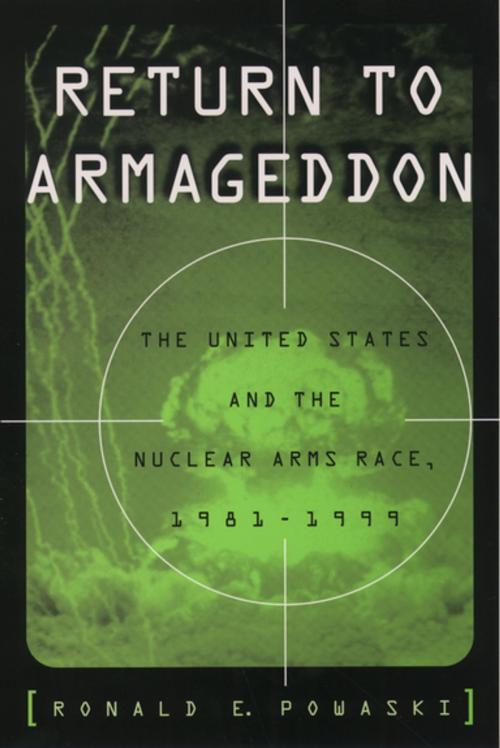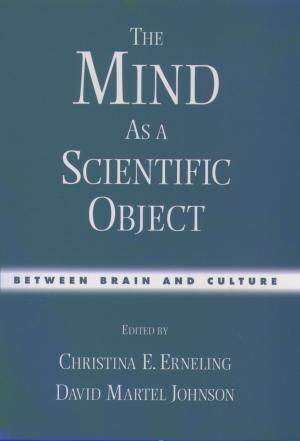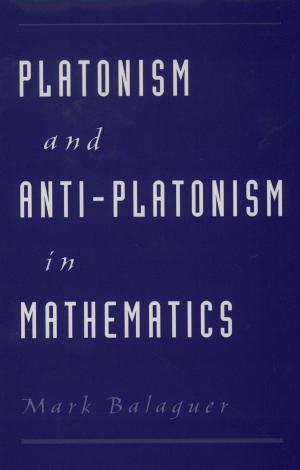Return to Armageddon
The United States and the Nuclear Arms Race, 1981-1999
Nonfiction, Social & Cultural Studies, Political Science, Politics, Arms Control, History, Military, Nuclear Warfare, Americas, United States, 20th Century| Author: | Ronald E. Powaski | ISBN: | 9780190289676 |
| Publisher: | Oxford University Press | Publication: | February 20, 2003 |
| Imprint: | Oxford University Press | Language: | English |
| Author: | Ronald E. Powaski |
| ISBN: | 9780190289676 |
| Publisher: | Oxford University Press |
| Publication: | February 20, 2003 |
| Imprint: | Oxford University Press |
| Language: | English |
When the Cold War ended, the world let out a collective sigh of relief as the fear of nuclear confrontation between superpowers appeared to vanish overnight. As we approach the new millennium, however, the proliferation of nuclear weapons to ever more belligerent countries and factions raises alarming new concerns about the threat of nuclear war. In Return to Armageddon, Ronald Powaski assesses the dangers that beset us as we enter an increasingly unstable political world. With the START I and II treaties, completed by George Bush in 1991 and 1993 respectively, and the Comprehensive Test Ban Treaty (CTBT), signed by Bill Clinton in 1996, it seemed as if the nuclear clock had been successfully turned back to a safer hour. But Powaski shows that there is much less reason for optimism than we may like to think. Continued U.S.-Russian cooperation can no longer be assured. To make matters worse, Russia has not ratified the START II Treaty and the U.S. Senate has failed to approve the CTBT. Perhaps even more ominously, the effort to prevent the acquisition of nuclear weapons by nonweapon states is threatened by nuclear tests conducted by India and Pakistan. The nuclear club is growing and its most recent members are increasingly hostile. Indeed, it is becoming ever more difficult to keep track of the expertise and material needed to build nuclear weapons, which almost certainly will find their way into terrorist hands. Accessible, authoritative, and provocative, Return to Armageddon provides both a comprehensive account of the arms control process and a startling reappraisal of the nuclear threat that refuses to go away.
When the Cold War ended, the world let out a collective sigh of relief as the fear of nuclear confrontation between superpowers appeared to vanish overnight. As we approach the new millennium, however, the proliferation of nuclear weapons to ever more belligerent countries and factions raises alarming new concerns about the threat of nuclear war. In Return to Armageddon, Ronald Powaski assesses the dangers that beset us as we enter an increasingly unstable political world. With the START I and II treaties, completed by George Bush in 1991 and 1993 respectively, and the Comprehensive Test Ban Treaty (CTBT), signed by Bill Clinton in 1996, it seemed as if the nuclear clock had been successfully turned back to a safer hour. But Powaski shows that there is much less reason for optimism than we may like to think. Continued U.S.-Russian cooperation can no longer be assured. To make matters worse, Russia has not ratified the START II Treaty and the U.S. Senate has failed to approve the CTBT. Perhaps even more ominously, the effort to prevent the acquisition of nuclear weapons by nonweapon states is threatened by nuclear tests conducted by India and Pakistan. The nuclear club is growing and its most recent members are increasingly hostile. Indeed, it is becoming ever more difficult to keep track of the expertise and material needed to build nuclear weapons, which almost certainly will find their way into terrorist hands. Accessible, authoritative, and provocative, Return to Armageddon provides both a comprehensive account of the arms control process and a startling reappraisal of the nuclear threat that refuses to go away.















